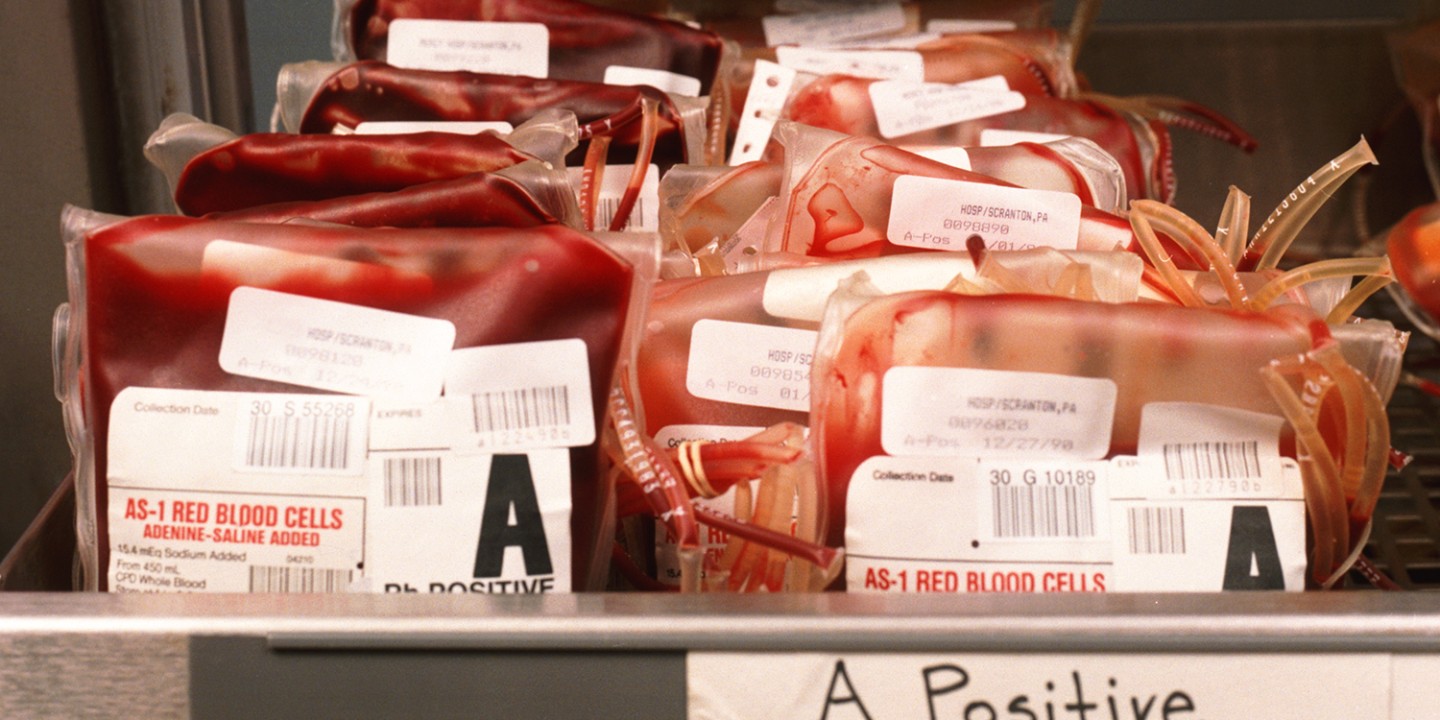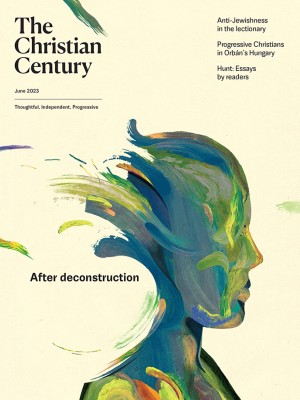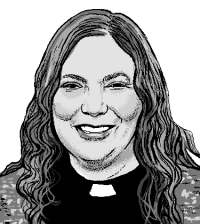The strangers who saved my life
When you receive an emergency transfusion, you don’t get to choose who the blood comes from.

(Photo by John Foxx / Stockbyte / Getty)
I recently went into the hospital for a routine hip replacement. My left hip was replaced ten years ago, and now the right hip ached for its turn. The surgeon told me that techniques have improved in the past decade and I should expect a smooth and speedy recovery compared with the last time. This was important to me given my impending retirement, as I wanted to be as fit and present in church as possible. I considered delaying the surgery, but increasing pain was already diminishing my capacity at work, and the surgeon’s assurances made the decision simple.
As it turned out, the surgery was far from routine. The surgeon accidentally cut the femoral artery in my leg, which can cause a person to bleed out within a few minutes. Thankfully, the artery was repaired in time, and the surgery continued. I had two transfusions in the operating room, two more in recovery, and one after that. I now have matching titanium hips. I also have anemia-induced fatigue that will last throughout my final months at the church and possibly beyond. I can only do a quarter of what I want to do. On the other hand, I’m grateful to be alive. I’m grateful for all the strangers who donated the blood that saved my life. I’ve been thinking about them and about other lifesaving strangers too.
Read our latest issue or browse back issues.
In this time of multiplying rainbows defiant in the face of growing antigay, anti-trans legislation, I have come into contact with the Rainbow Railroad, a global organization that helps LGTBQI+ people facing deadly persecution, like the Underground Railroad helped those fleeing enslavement to find safety and a new life. Since its founding, the Rainbow Railroad has helped almost 8,000 people find safety through emergency relocation, getting them visas, flights, and housing funded by donations, including airline miles.
One traveler on the Rainbow Railroad arrived at our shelter this week. I won’t say from where, but the flight was 16 hours. Their home country is one of at least seven nations where being queer is a capital crime. Their father is a religious extremist on a US terror list, and this young person experienced terror and torture right at home. Now they are safe—or at least, much safer. The United States was once a desired destination on the Rainbow Railroad, but that is no longer true.
With increasingly cruel legislation against queer people, especially transgender young people, our nation is no longer considered to be such a sanctuary. Now the top destinations are Canada, Spain, and the Netherlands. Parts of our country are aligned with the 70 nations where same-sex sexual activity is a crime. Anti-sodomy laws were ruled unconstitutional by the US Supreme Court in 2003 but are still on the books in 14 states. Four hundred anti-LGBTQ bills were introduced across the United States last year. In this disastrous climate, I’m grateful for all the strangers who make the Rainbow Railroad possible and that our rainbow-pillared church basement is a safe house on the way to new life.
To me, this is an example of the need to take sides and to act, to stand against attitudes and legislation that harm God’s children. It is ironic that in my denomination, which proudly claims Martin Luther’s famous dictum “Here I stand, I can do no other” (even available on socks!), we nonetheless fail to take an unequivocal stand for the sake of our queer siblings. Citing the need to hold the church together, we allow for “bound conscience,” refusing to call out the hate it ultimately represents in sanctioning the condemnation of queer people as defective.
Thus, when our presiding bishop released a long-awaited statement on anti-trans legislation, it included the line, “We may have differing opinions on ‘matters related to sexual orientation and gender identity,’ but we must always uphold the dignity and humanity of everyone.” The implication is that holding an opinion that, say, being transgender is an affront to God and upholding that person’s dignity are things that can coexist. The reality is that it’s impossible to uphold a person’s dignity and humanity if your opinion is that their very humanity is defective.
I understand the desire to try to hold a church body together and to resist the divisions that wrack our nation and world. I want to do that too. But as the body of Christ on earth, how can we not see that for Jesus, loving all demands taking sides with some for the sake of the whole?
And then I think of my five transfusions and the strangers who donated the blood I received. Maybe I received blood from someone who sports a bright red MAGA hat. Maybe I received blood from someone who rejected their transgender child. Maybe I received blood from someone seeking to ban drag queens and books on Black history. Maybe I received blood from an enemy to all I hold dear, and their blood saved my life.
It’s possible. When you give blood, you can’t choose for your blood to go only to someone who shares your political views or your theological views. You can’t say that you want your blood to go only to a person of your race or ethnicity. You just give the blood and it goes where needed. And likewise, when you receive blood, you can’t pick and choose. I wasn’t even conscious for most of it, having no choice in anything that was happening around me or to me. What does this mean? I find myself confounded by it and unable to stop thinking about it. Did a MAGA-hatter save my life?
I have not figured out an answer, except that I know the blood spilled out on Calvary and in the chalice is given freely, to all comers—and I know that in the end, our lives depend on recognizing the blood we share.







